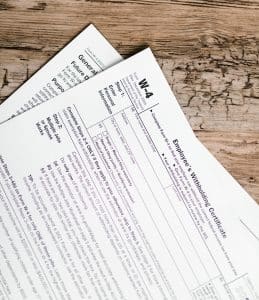Frequently Asked
What is an Escrow? | IRS Definition of a Escrow
An escrow account is an account held by a trusted third party to complete a transaction. The most common type of escrow account occurs during a home sale. The buyer will send money to the escrow company. The escrow company will verify the transaction and make sure the deed is filed before it sends the […]
What is a Trust? | IRS Definition of a Trust
Most people will be familiar with trusts that occur after death. An individual may put their assets in a trust account so they can control those assets with stipulations even after they are deceased. But trusts can also occur during life. A trust account is created when assets are placed in the care of a […]
What is a Revocable Trust? | IRS Definition of a Revocable Trust
A revocable trust is a trust set up by a grantor to manage assets and distribute funds to a beneficiary. It is distinguished from an irrevocable trust in that an irrevocable trust cannot be changed after it’s been created. Revocable trusts are still under the control of the grantor and will use the grantor’s own […]
Does a Sole Proprietorship need a Tax ID (EIN)?
Quite a few sole proprietorships are schedule C proprietorships. They don’t have an EIN. They just pay taxes through their SSN/ITIN. If there are forms that the company needs to fill out, or permits the company needs, they use their SSN. And if the sole proprietorship has to open a business bank account or get a […]
Why Do I Need a Tax ID Number?
First: Everyone needs a tax ID number, and everyone has a tax ID number. Individuals usually have a social security number (SSN) or individual taxpayer number (ITIN). These numbers are used so that they can file their taxes, and everyone has to file their taxes. But these numbers alone aren’t always enough. Some people need […]
When Do You NOT Need a Tax ID Number?
If you have a business, you might be wondering whether you really need a tax ID number. There are situations in which you don’t. If you are a sole proprietor (a single member business) and you don’t hire employees, then you probably don’t need an EIN. A lot of people fall under this banner, such […]
How Long Does It Take To Get An EIN Number?
You may be in the process of finding out how to apply for an EIN (also known as a federal tax ID number). This is a prerequisite for operating your business, so you should get started early or at least follow a timeline for your operations. This article will answer the question, “How long will […]
What is a Sole Proprietorship? | IRS Definition of a Sole Proprietorship
A sole proprietorship is a company with a single owner. Often, this single owner will file for their sole proprietorship with a Schedule C on their own 1040 tax return. Consequently, the sole proprietorship is the individual for all intents and purposes. Sole proprietorships may not need an EIN if they never hire employees, though having one is […]
Where Can I Find a Sole Proprietorship Tax ID Application?
Is an EIN for sole proprietorship a requirement? Not necessarily, but it can be beneficial to have one. If you have a sole proprietorship that doesn’t hire any individuals, you can use your own social security number rather than having to get a tax ID, also known as an Employer Identification Number. But if you […]
Where Can I Find a Non-Profit Organization Tax ID Application?
A non-profit organization isn’t taxed. But it still does need to file tax returns, and it needs to fill out a tax ID application; some of its tax returns even need to be public. For most non-profit organizations, the ideal time to fill out a tax ID application is during the formation of the non-profit. But […]
« Previous 1 … 8 9 10 11 12 … 14 Next »
Gov Easy LLC is a private business-to-business (B2B) document filing service. We work only on behalf of our customers as a Third Party Designee and we are not associated with any government agencies such as the US Department of Treasury or the Internal Revenue Service (IRS). Our users can choose to obtain a Tax ID (EIN) Number on their own by working directly with the IRS, which offers EIN Numbers free of charge at www.irs.gov but we will not be able to help with your EIN obtainment process. We do not provide legal or financial advice. Use of this website, submission of information and purchases are subject to our Privacy Policy and Terms of Service.









